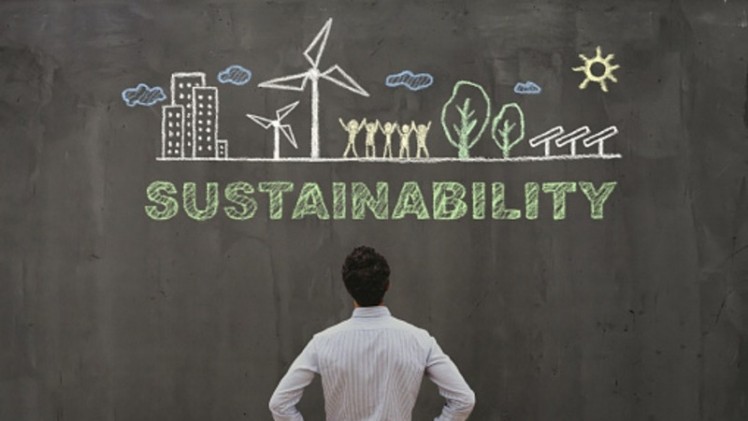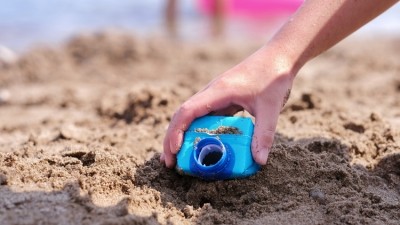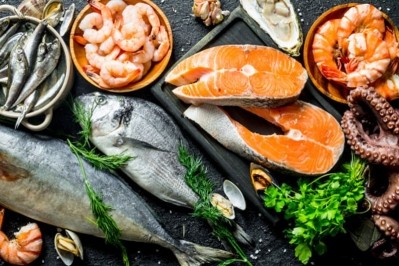Sustainability Snippets: Thai Union strategy, New Zealand recycling, E-FISHient cultivated fish and more feature in our round-up

‘Pressure to perform’: Thai Union on how it hopes to raise credibility of sustainability initiatives - Exclusive
Seafood major Thai Union has taken the unprecedented step of partnering with NGO Sustainable Fisheries Partnership (SFP) and opening up its entire supply chain for auditing under the body’s internationally recognized Seafood Metrics system, to boost the credibility of its sustainability initiatives.
Thai Union has placed a great deal of focus on developing its sustainability strategy Seachange, covering initiatives spanning climate change, food chain traceability, employee rights and more, with its efforts having earned it second place on the Dow Jones Sustainability Indices (DJSI) last year.
One of the steps it has taken to do this has been to enter a partnership with SFP, which is an NGO world-renowned for its work in establishing sustainable seafood supply chains worldwide. It is also well-known for its Seafood Metrics system, a system that allows companies to more fully understand sustainability risks in their sources.
“One very significant thing we will be doing under this partnership is that we will be providing all the necessary supply chain data to SFP for evaluation using its Seafood Metrics system,” Thai Union Group Director for Sustainability Adam Brennan told FoodNavigator-Asia in an exclusive interview.
‘Transforming recycling’: New Zealand food sector pushes for clearer on-pack labelling
The New Zealand food and grocery sector says that clearer on-pack labelling denoting packaging recyclability is crucial if the government’s latest eco initiatives are to succeed.
Earlier this year, the New Zealand Ministry of Environment (MOE) announced a plan dubbed ‘Transforming Recycling’, a document comprising three different initiatives: A container return scheme where consumers are incentivised to return beverage containers to be recycled/reused in exchange for a refundable deposit; Improvement of kerbside recycling which would standardise collection and processes for all local councils; and Business food waste separation which would mandate businesses to separate food waste from other waste.
According to New Zealand Food and Grocery Council (NZFGC) Chief Executive Katherine Rich, the council supports most of the points made by MOE, but believes that even more areas of improvement can be implemented to maximise efficiency – such as proper, unified on-pack recycling labelling to provide consumers with more clarity.
“[Our data indicates that] 69% of New Zealanders say they check the label on packaging before recycling,” she told FoodNavigator-Asia.
Cultivated seafood start-up targets ‘fleshy’ tilapia species for mass disruption: ‘Our cell-based fish will be better than the original’
E-FISHient Protein is developing raw material for fish cutlets, fish fingers, and fish balls, with plans to do the same for fish fillet, the start-up’s CEO Dana Levin tells FoodNavigator.
The cultivated seafood sector is growing with the addition of E-FISHient Protein, a joint venture born out of collaboration between BioMeat Foodtech and the Volcani Institute in Israel.
BioMeat, which invests in meat substitute and alternative protein R&D, takes the role of controlling partner in the new start-up with a 76% share of E-FISHient’s capital. The investment firm will be responsible for the start-up’s business development and operational funding in the coming years.
Securing Indonesia’s food safety: Government tightens rules for heavy metal contamination in processed foods
The Indonesian government has announced new, more rigorous regulations to control heavy metal contamination in processed foods within the local food supply, in response to rising consumer concerns.
Heavy metal contamination in foods and beverages is not generally visible without professional analysis or testing in the laboratory, and this is especially so for processed items.
Indonesia has been seeing increasing industrial activity such as reservoir development over the past few years, resulting in rising concerns of heavy metal leaching into waterways and the general environment.
Verifying vegan integrity: India mandates traceability as key criterion for firms to obtain regulatory approval
The Food Safety and Standards Authority India (FSSAI) has specified supply chain traceability up to the manufacturer level as a key criterion for food firms manufacturing vegan products to obtain the relevant regulatory permissions.
Specific regulations to govern vegan foods and beverages have been in the works since last year, when FSSAI issued a notification on draft regulations specifying the creation of a new logo specifically for vegan foods in addition to labelling and display requirements.
Earlier this year, the agency implemented the enforcement of new vegan regulations with immediate effect but with an interesting addition, which was the mandating of traceability within the production value chain of all foods and beverages looking to make the vegan claim.
“There shall be traceability established up to the manufacturer level, and the [relevant food firm] shall comply with any other requirements specified by the Food Authority to maintain the vegan integrity of the foods or food ingredients or products,” FSSAI CEO Arun Singhal said via a formal statement.












